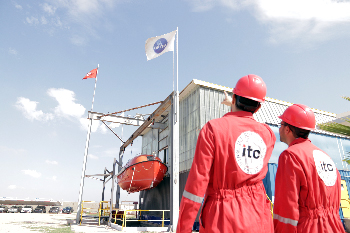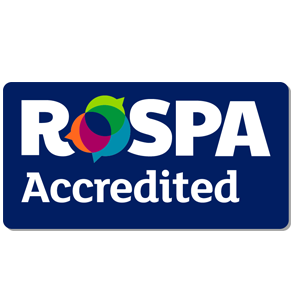Accreditation
ITC TUNISIA
Accreditation & Quality Control
ITC conducts all of its operations in line with an approved Quality Management System (QMS), ensuring the highest quality and standard of operations with annual audits by OPITO to ensure compliance. All training courses and instructors are regularly audited and upgraded to meet the rigorous requirements of the ITC internal verification system, ensuring your trainees receive world class training at all times. ITC Tunisia is accredited by International organisations OPITO, RoSPA, IWCF, JOIFF and accredited by Tunisian Flag Authority to deliver STCW training courses.

OPITO

- Tropical Basic Offshore Safety Induction and Emergency Training (T-BOSIET)
- Tropical Further Offshore Emergency Training (T-FOET)
- Tropical Helicopter Underwater Escape Training (T-HUET)
- Basic Offshore Safety Induction and Emergency Training (BOSIET) with Compressed Air Emergency Breathing System (CA-EBS)
- Further Offshore Emergency Training (FOET) with Compressed Air Emergency Breathing System (CA-EBS)
- Helicopter Underwater Escape Training (HUET) with Compressed Air Emergency Breathing System (CA-EBS)
- Shallow Water Compressed Air Emergency Breathing System Initial Deployment Training
- Basic H2S Training (Theory and Practical)
- Authorised Gas Tester (AGT) Training Standard
- Basic Onshore Emergency Response (BOER)
- Further Onshore Emergency Response (FOER)
- International Minimum Industry Safety Training (IMIST) Standard
IWCF

- WDC (Well Drilling Control) : Level 2
- WDC (Well Drilling Control) : Level 3 & 4
- WIPC (Well Intervention Pressure Control) : Level 2
- WIPC (Well Intervention Pressure Control) : Level 3 & 4
JOIFF

- HSE Supervisor
- Fire Fighter Basic
- Fire Warden
- Industrial Fire Warden
- Fire Team Member Initial and Refresher
- Fire Team Leader Initial and Refresher
- SCBA Initial and Refresher
- First Aid
- Confined Space Entry & Rescue
- H2S Awareness
- Helideck Team Member
- Helideck Team Leader
- Helicopter Fire and Rescue
- Emergency Incident Controller
- Working at Height & Rescue from Height
- SCBA Maintenance
RoSPA

- RoSPA Level 2 International Award in Defensive Driving
STCW and Maritime
- Basic Training
- Proficiency in Survival Craft and Rescue Boats other than Fast Rescue Boats
- Proficiency in Fast Rescue Boats
- Advanced Fire Fighting
- Medical First Aid
- Medical Care
- Ship Security Officer
- Security Awareness
- Competence for Seafarers with Designated Security Duties
- Basic training for Oil and Chemical Tanker Cargo Operations
- Advanced training for oil tanker cargo operations
- Advanced training for Chemical Tanker Cargo Operations
- Basic training for liquified gas tanker cargo operations
- Advanced training for liquified gas tanker cargo operations
- Crowd Management Training
- Safety training for personnel providing direct service to passengers in passenger spaces
- Crisis Management and Human Behaviour Training
- Passenger Safety, Cargo Safety and Hull Integrity Training
- Basic Safety Training for Fishermen
- IMDG Code, Transportation of Dangerous Goods
- ISGOTT International Safety Guide for Oil Tanker and Terminals
- ISPS Code International Ship & Port Facility Security Code
- CSO (Company Security Officer)
- PFSO (Port Facility Security Officer)
- Security Awareness Training for Port Facility Personnel with Designated Security Duties
- Security Awareness Training for All Port Facility Personnel
- Training of Ship’s cooks
- OPRC-90 (Oil Pollution Response and Co-operation).